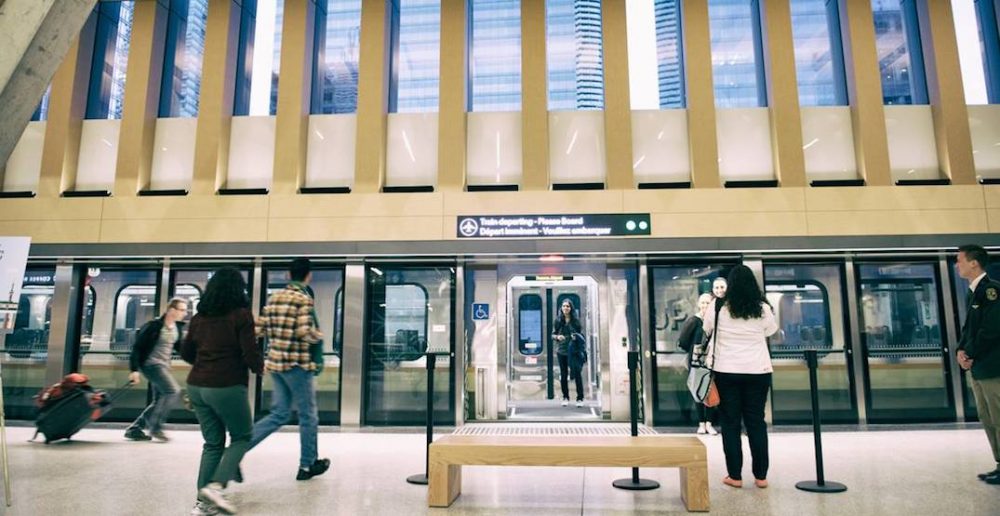TTC launches support program for witnesses of suicide and attempts in subway

The TTC and Distress Centres of Greater Toronto have launched a new program, aimed to provide support to witnesses of suicide and attempts in the subway system.
As per the new program, trained volunteers from Distress Centres of Greater Toronto will visit subway stations in the days following a suicide or an attempt, to be available to people who may have been impacted by a traumatic event on their commute.
Volunteers, identified by brightly-coloured smocks and caps, will answer questions and direct anyone interested in support services.
“Research has shown that the impact of a traumatic event is complex and emotionally distressing — we want to make sure our customers are well-supported,” said TTC Chair Jaye Robinson in a release. “This program is one piece of our larger strategy to offer help and hope to those who may be in mental distress or contemplating suicide.”
See also:
- TTC currently undergoing study to install subway barriers
- The TTC is sharing alarming numbers on World Suicide Prevention Day
Last summer, the TTC announced that it was engineering a study to install subway barriers. Brad Ross, Chief Communication Officer for the TTC, told Daily Hive that the study will be completed in 2020, but there are no estimated dates as to when barriers would be installed — the study will inform that.
The barrier study announcement came after a 20-year-old male and a woman both died at track level, only two days apart from one another.

Platform level doors at Union Station’s Up Express stop (Union Pearson UP Express/Facebook)
As part of World Suicide Prevention Day, honoured on September 10, the TTC is also launching a refreshed Crisis Link poster. The new posters continue to invite anyone in distress to reach out to Crisis Link, and encourages those who see someone in distress to notify TTC staff.
In 2011, the TTC, Distress Centres and Bell Canada launched Crisis Link, which equips all platform pay phones near the subway’s Designated Waiting Areas with a free direct dial feature to the Distress Centres of Greater Toronto.

TTC
Crisis Link connects those contemplating suicide with a trained counsellor to help de-escalate the situation and connect them with further help. All calls are confidential.
Counsellors will talk with the caller and assess the risk. Distress Centres staff work as a team and will contact the TTC’s Transit Control Centre, if needed, to take appropriate steps to keep the individual safe.
Help is available to those in distress 24-hours a day via Distress Centres of Greater Toronto at 416-408-HELP (4357). TTC employees can also access internal confidential support services including the Peer Support Program and EFAP.


